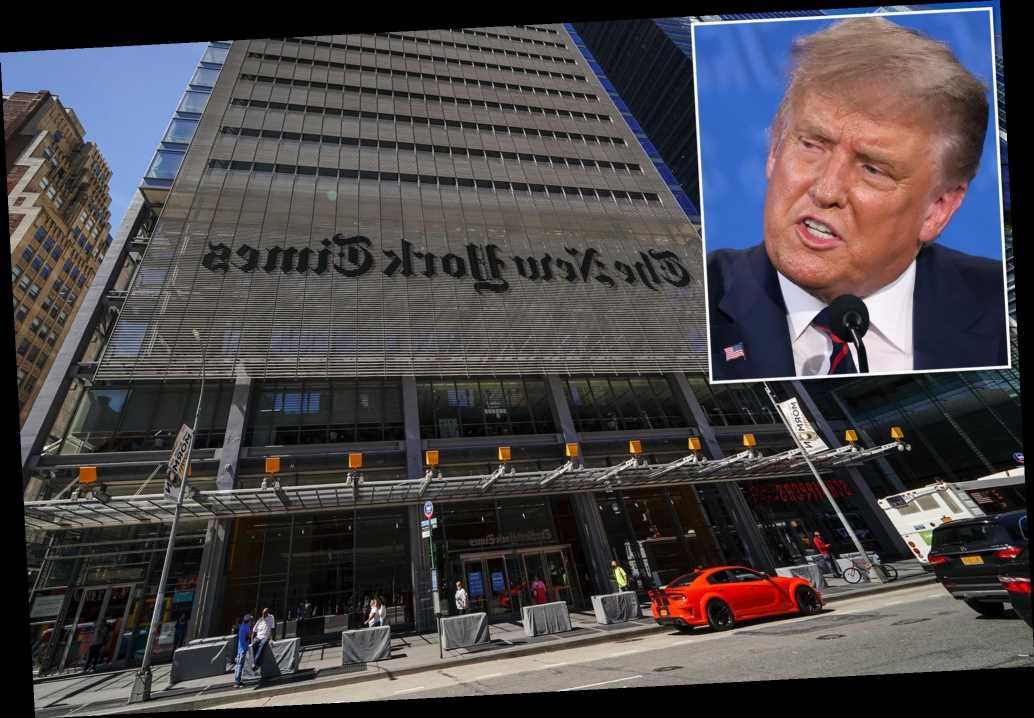The New York Times was ripped Friday for suggesting that President Trump might have to give up his re-election bid after contracting the coronavirus.
“If he becomes sick, it could raise questions about whether he should remain on the ballot at all,” The Times wrote after opining in the same piece that the president’s diagnosis throws “the nation’s leadership into uncertainty.”
NewsBusters’ managing editor gave The Gray Lady a swift dressing down for the not-too-subtle musings.
“No big deal. Just The New York Times openly wondering if (read: rooting for) Trump should QUIT the election and thus preemptively concede to Joe Biden,” Curtis Houck wrote.
“And yet, the national press don’t want to be called the enemy of the people,” he added.
As Fox News reported others took to Twitter to rake The Times over the coals for the premature report.
“No, he will not quit. I think the New York Times rag should close their doors forever,” @joydcarter said in a tweet.
Lady Patriot said: “Unbelievable. The lengths the Left will go to steal an election.”
“Remain on the ballot at all? WOW … INSANITY,” tweeted Cable News Watch.
The Post has reached out to The Times for comment.
Like two of his predecessors, Trump could temporarily hand over his power to the vice president should he become incapacitated — including while undergoing a medical procedure, if necessary.
Under Section 3 of the US Constitution’s 25th Amendment, the president could declare himself “unable to discharge the powers and duties” of the presidency.
Vice President Mike Pence would become acting president, although Trump would remain in office — and would regain his powers by declaring in writing that he is again ready to discharge them.
In 1985, Vice President George H.W. Bush assumed the duties of acting president when President Reagan had precancerous lesion removed.
President George W. Bush also transferred his powers twice to Vice President Dick Cheney to undergo a colonoscopy under general anesthesia – once in 2002 and again in 2007.
Share this article:
Source: Read Full Article

